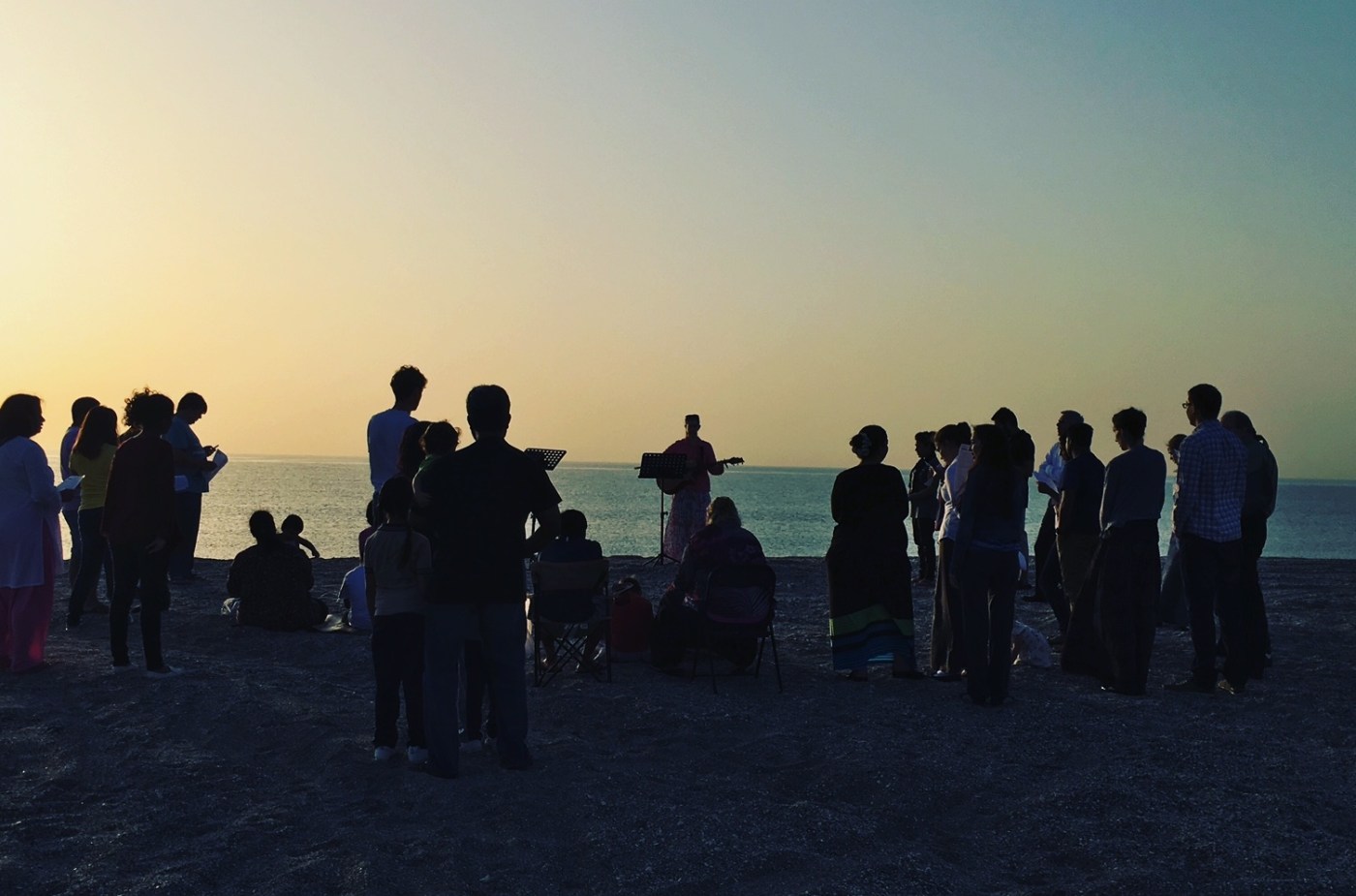Have you ever watched a show like America’s Got Talent or American Idol and grimaced when someone gets on stage who has no business being there? You watch as they face the embarrassment of being told on a national stage that they can’t sing and as the news breaks (with the family fuming backstage) the singer’s world comes crashing down in a moment. As you see this unfold time and time again, one is always left asking the question, “Why didn’t someone love them enough to tell them they couldn’t sing before it got to that point?”
I wouldn’t want to be outed as a phony on a national stage. To find out that I was delusional about my abilities. And yet, so many of us live our lives insulating ourselves from the reality about ourselves. Now whether or not you are a good singer is really irrelevant in the grand scheme of things, but there are greater realities that we also avoid. Namely, spiritual realities about the standing of our soul before God and it is from these realities that we tend to hide. This is tragic, foolish, and it is dangerous. Because the truth that we see in Scripture is that every single man and woman will one day stand before the judgment seat of Christ – as the writer of Hebrews says, “It is appointed for people to die once — and after this, judgment” (Heb. 9:27) Therefore, we should not wish to face that day, be it tomorrow or fifty years from now, on the basis of our own subjective assessment of our standing before the Judge
God has not designed for that to be the case – he has not designed for us to be independent of others, he has not designed us to base our sense of justification before him on self-assessment alone. Because we will all stand before the judgment seat of Christ, we need others and we need others because of at least three realities that we see in Scripture.
The heart is deceitful – We all know the familiar words “The heart is more deceitful than anything else, and incurable — who can understand it?” (Jeremiah 17:9) The story of the Bible is a case-study of humanity which proves the truth of those words. Our feelings are poor indicators of our standing before God. Our heart can condemn us when the truth is that we are justified. And our heart can justify us when the truth is that we are condemned.
When pleading with his readers, Paul will make the appeal multiple times “Do not be deceived”. In the case of the Corinthians, Paul saw their arrogance in relation to the fruit of their lives which was disconnected from their claim of faith in the gospel of Christ. He is concerned for them that they would be deceived and so he warns them and even instructs discipline in at least one case so that a so-called brother will not be deceived.
Satan is on the hunt – We have a real enemy who roams about seeking someone to devour. He is a liar, who loves to say “peace, peace” when there is no reason for peace or to incite fear when there is reason for assurance. Whatever his angle, his aim in all his devices is to “steal, kill, and destroy”. How do you combat this deadly liar? With truth. But when you combine his lies with our propensity toward deception, we understand that we need truth to comes at us from the outside, we need people who are “speaking the truth in love” on a regular basis, combatting the lies that would either cause crippling fear or deadly calm.
Endurance is necessary – Perseverance is the most profound mark of genuine faith. And the writer of Hebrews points out that even the most radical, most godly, most genuine of Christians should have a healthy sense of their need for endurance and they should understand the role that the local church plays in that endurance. He writes that we should not neglect to meet together, that we should exercise watchfulness over each other, that we should stir each other up to love and good works, especially in light of the day of judgment. Why? Because we need to endure. Baby Christians need endurance. Seasoned saints need endurance. And we should not expect to endure apart from the means of church membership that God has ordained.
I don’t know about you, but I don’t want to be on my deathbed with only my own subjective, self-assessment of the condition of my soul. Of course I claim faith in Christ, but is there evidence of a faith that works, a love that labors, and a hope in Jesus that endures? Are there others that I have invited into my life who then in my hour of greatest need can say, “Steve, I know you are loved by God because I have seen his grace in your life. There is no condemnation for you.”
Now God has in his wisdom designed a community that provides just that – the local church. And it is membership in the local church that is God’s mechanism by which he guards from deception, strengthens our sense of assurance, and helps us endure.
Obviously, not just any so-called “church membership” will do. It must be meaningful, it must have substance, it must be something that has authority behind it which can provide safety, direction, and assurance. To merely have your name on a list is of no use.
We need…
- Clear boundary lines – a biblical understanding of conversion. That is, we need to be members of a church where a clear understanding of how someone becomes a Christian is taught and where this is the standard for affirming an individual and bringing them into the church.
- The expectation of discipleship – a biblical understanding of the Christian’s calling to walk in a manner that makes sense with the gospel and to be conformed into the image of Jesus is essential to avoiding deception. Jesus’ sheep hear his voice and they follow him. We need membership where our commitment to each other is a commitment to provoke each other to love and good works.
- The practice of discipline – a biblical understanding of congregational authority and responsibility to affirm, and if needed to revoke, a person’s profession of faith must be present. We need a membership that is devoted to loving watchfulness and that is ready to affirm or rebuke/remove a member on the basis of their ongoing response to the gospel and the clear commands of Scripture. Paul could not be more clear, it is not loving or merciful to continue to certify someone as a brother or sister in the faith while they refuse to submit to lordship of Jesus. Why? Because then we become enablers of their deception.
To be at a church that does not have these things could be harmful to your soul. Don’t go to a church where you can be a member in anonymity. You need to approach church membership with the commitment to know and to be known by your fellow members. Furthermore, if you go to a church where you do not know a pastor/elder on a personal level, you need to either pursue one of the elders of that church or find another church.
Life is short, eternity is long, our hearts are weak, and our enemy is real. Therefore, we need church membership, especially as we see “the day approaching”.
One day, when the heart monitor flatlines and the respirations cease and I cross into eternity, I don’t want to walk through that door on the basis of my own subjective sense. Whether in that moment I am tempted with false hope in my goodness or the terror of doubt because of my sin, I want brothers and sisters in my life who reminded me of the gospel, who rebuked my sin, and who encouraged the evidence of God’s grace in my life. People who will hold my hand and hand me off to Jesus.


